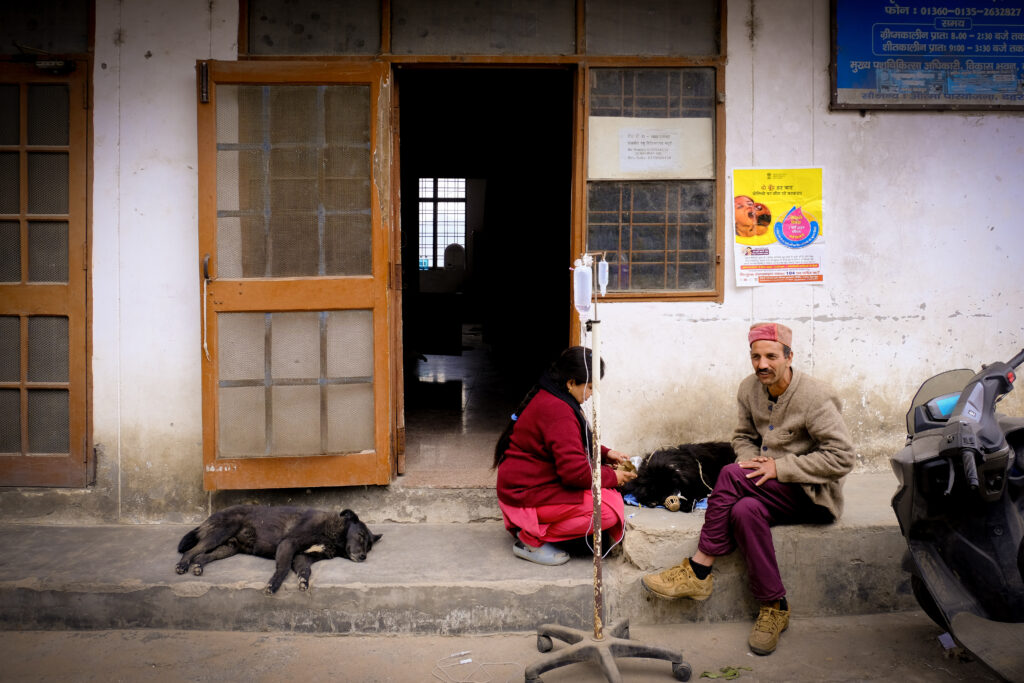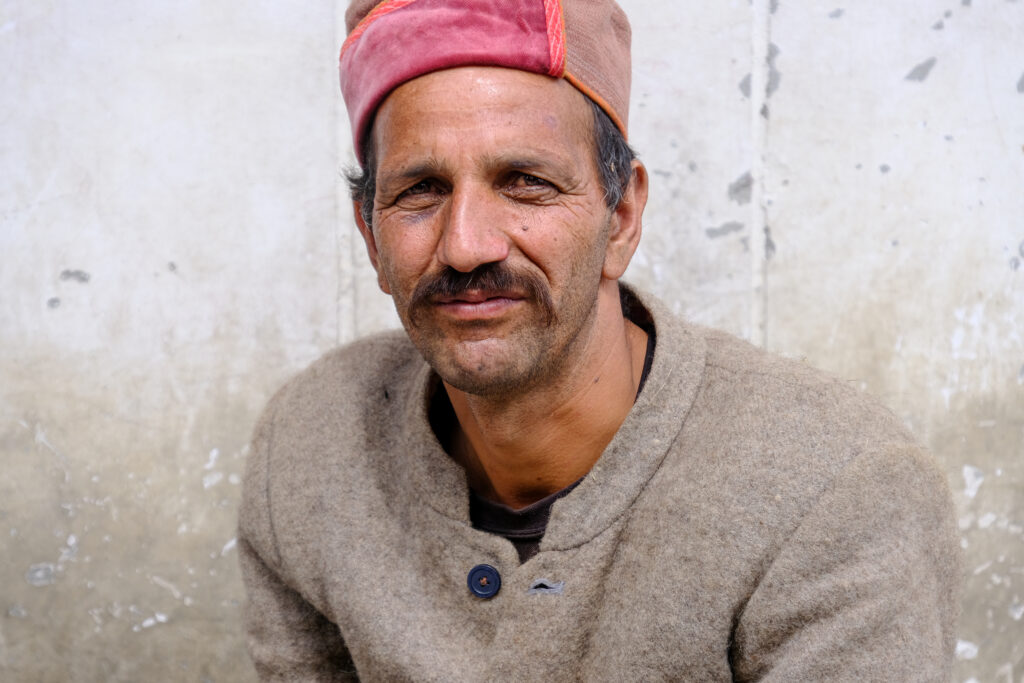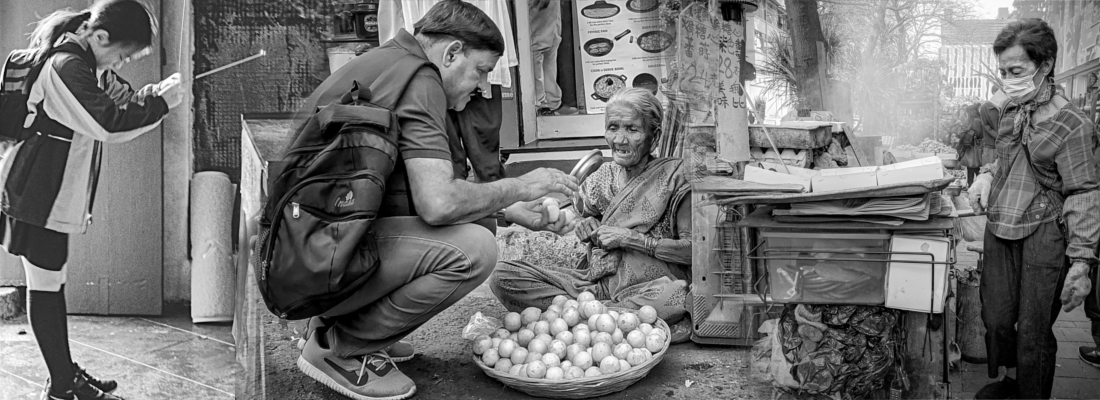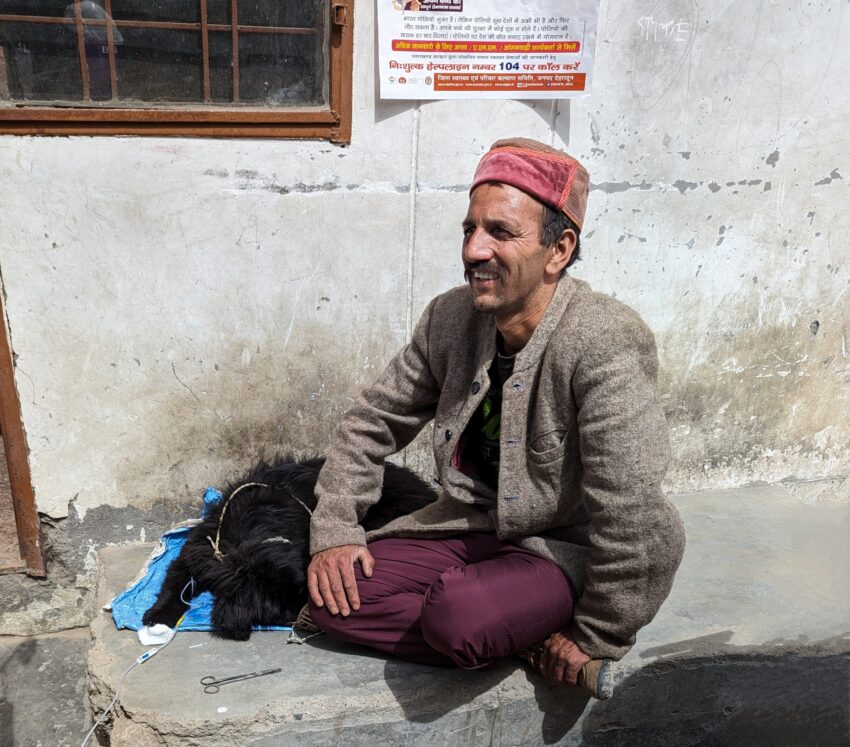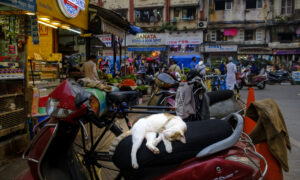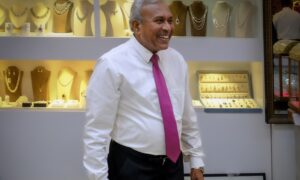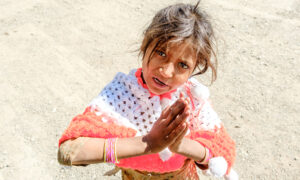This man is a shepherd in modern-day India.
He has a gentle, obliging demeanor; an honest and engaging smile; and an unassuming presence, as if content in his little corner of the world and demanding nothing. He is 40 years old.
He owns about 1,000 sheep, he says, which he tends with his brothers six months out of the year, away from his wife and children, away from his home. I met him at a government-run veterinary clinic where he was arranging treatment for his dog.
The dog, a purebred bhutia, has no name. For him the animal is a tool and to name it would be to lose objectivity.
He crafted his own coat from wool from his sheep. He also crafted his hat.
I asked him how many children he has, and he told me one. By my reckoning he has three. He doesn’t count his two girls.
He is not poor. His coat would fetch more than a week’s wages in many jobs; his dog ten times that. And he also owns an apple orchard. All in, he earns more than the doctor treating his dog.
He studied a little as a child, in the 1990s, until age 12. But his heart wasn’t in it. He knows a few English words but doesn’t speak or understand the language. (The vet translated for me.)
His father was a shepherd. So was his grandfather and great-grandfather. Probably further back, too — for how long no one knows for sure. But his son wants nothing to do with the historic family business. The son has aligned himself with the new India: he is technologically oriented and upwardly mobile, educated and informed, ready to join the modern world.
But why?
Perhaps the most striking feature of the shepherd is this: He is happy. “I have no stress,” he says, not boastfully, but rather as though he can’t imagine where stress could possibly come from.
What is the son escaping from? And what is he running toward?
